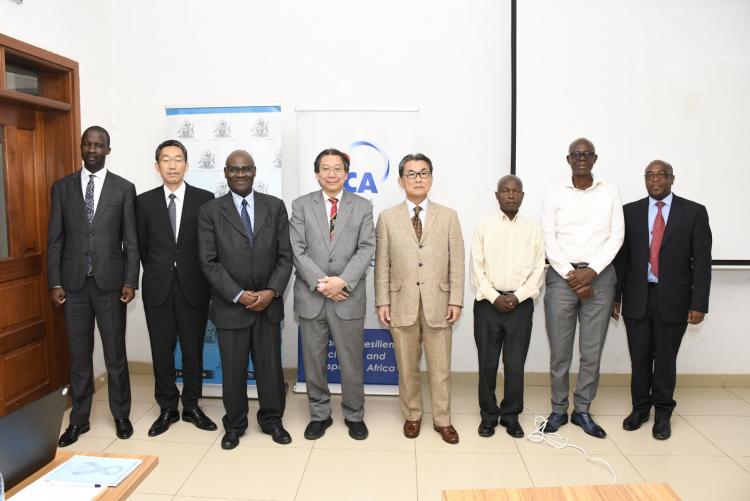JAPANESE ETHICS IN TAXATION AND BUDGET ISSUES
The Institute for Development Studies (IDS), University of Nairobi, in collaboration with the Japan International Cooperation Agency (JiCA), held a public lecture on Japan Tax Ethics Budget Issues, on Tuesday 11th February, 2025, featuring Guest Speaker Prof. Takahashi Motoki. Prof. Takahashi is a professor at the Graduate School of Asian and African Studies, the Director of the Center for African Area Studies at Kyoto University, and a Professor Emeritus at Kobe University.
Japan International Cooperation Agency (JICA) is the development arm of the Japanese government that implements Official Development Assistance (ODA) to promote socio-economic development in partner countries. The JICA Chair Program, an initiative pioneered by former JICA president KITAOKA Shinichi, aims to facilitate learning from Japan’s development experiences over time. JICA operates 96 offices worldwide, with 28 in Africa, and Kenya being the largest recipient of its support in the region.
Prof. Paul Kamau, Director of the Institute for Development Studies, noted in his opening and welcoming remarks that Kenya faces challenges in finding harmony between modernization and its traditions. He cited Japan’s modernization as a case study from which Kenya can learn, drawing insights from both its achievements and failures.
The Deputy Vice-Chancellor for Research, Innovation, and Enterprise, Prof. Francis Mulaa, welcomed the JICA Chair Program, emphasizing the need for further collaboration in establishing a Japanese model for modernization.
H.E. Ambassador Hiroshi Matsuura of the Embassy of Japan highlighted that Kenya could learn valuable lessons from Japan’s development agenda. Mr. Makoto Shinkawa, Chief Representative of the JICA Kenya Office, reaffirmed JICA’s commitment to supporting Kenya through technology transfer, soft loans, school construction, and advancements in the energy sector.
During his lecture, Prof. Motoki Takahashi stressed that corruption is a major obstacle to national stability and that Kenya must address it effectively. He emphasized that Japan has minimal cases of corruption and advocated for equal resource distribution and opportunities for all citizens to contribute to national development.
Prof. Takahashi also explained that Japanese modernization was historically influenced by ancient Chinese civilization "Also Japan experienced four major wars (Sino-Japan, Russo-Japan, 1st World War, 2nd World War) which fostered common sense of fear and pride and thereby national unity." Prof. Takahashi noted while discussing political turmoil caused by western advancement. The war fostered both a sense of national pride and a shared fear, ultimately strengthening national unity.
Following the wars, Japan emerged stronger due to governance and democratic practices, including an education system that accommodated both genders. Japanese culture upholds the idea that the state belongs to the people, ensuring leaders are held accountable. This principle widens opportunities for citizen participation and encourages young people to assume leadership through peaceful transitions rather than conflict. Prof. Takahashi emphasized the importance of learning from history to shape the future.
Reflecting on Japan’s modernization journey—achieving economic and democratic growth while preserving its culture and traditions—Kenya can draw valuable lessons from Japan’s development efforts and challenges. Similarly, Japan continues to learn from Kenya’s initiatives, fostering mutual collaboration in various areas.

